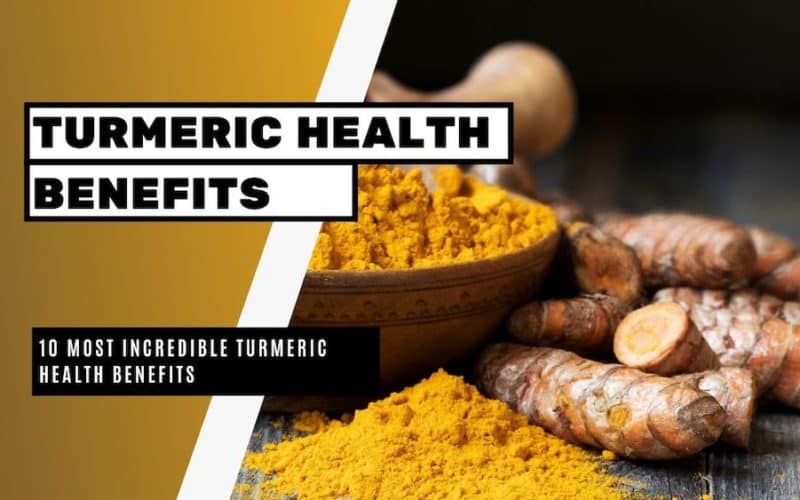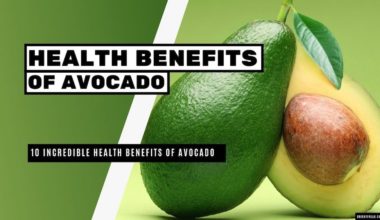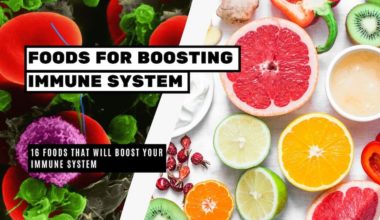Turmeric, the Indian spice that gives the curry a yellow color, has been used in India as a medicinal herb for over 4,000 years. Modern science has recently become more aware of the numerous turmeric health benefits. In this article, we will discover the ten most incredible turmeric health benefits.
Research is showing that the compounds found in the spice really do have amazing medicinal qualities. Curcumin is the compound responsible for incredible turmeric health benefits. Regular use of turmeric can help to prevent some serious diseases and illnesses altogether while destroying diseased cells and tissues.
Most Incredible Turmeric Health Benefits:
1. Immune system booster
Turmeric health benefits start in the gut, where it helps to promote healthy digestion. Without proper digestion, your gut will not process foods properly and can’t absorb the nutrients from these foods.
Turmeric helps your digestive system get rid of waste, absorb vitamins and minerals, and circulate them through the body, indirectly boosting the immune system. Turmeric also contains antimicrobial, antiviral, antibiotics which will give your immune system a boost directly.
2. Promotes a healthy weight
Turmeric health benefits can make you look and feel healthier by helping you maintain a balanced weight. It helps you feel fuller faster, regulates blood sugar levels, increases your calorie burning, and regulates hormones.
Because of this, your energy levels will be much higher, you will have a balanced production of bile, and your food will be digested properly. Turmeric is a fantastic dietary aid to help you slim down and maintain a healthy weight.
Turmeric is also helpful in cutting down on feelings of bloating or cramping and can be a healthy addition for anyone experiencing digestive disorders. When taken regularly, curcumin can lower blood sugar levels to help aid diabetics.
3. Fights Alzheimer’s
In 2008, the Annals of Indian Academy of Neurology released a study that shows that turmeric health benefits can include treating Alzheimer’s disease, the devastating illness that affects over 44 million persons across the globe.
Curcumin can battle or reverse the nervous system and brain degradation caused by Alzheimer’s and thin out protein deposits that lead to mental decline. Turmeric is more effective than traditional medications that cannot cross the brain barrier. Because curcumin can be absorbed into the bloodstream and passed directly through the barrier to the brain.
4. Slows down hair loss
Turmeric can be used externally to stimulate hair regrowth, or it can be taken internally as a supplement to encourage healthy hair growth. Curcumin contains many nutrients to promote healthy skin and hair. It is a natural approach to traditionally used harsh chemicals that do more damage than help to the scalp.
Many other turmeric health benefits, like immunity-boosting properties, will help to reverse the conditions that led to hair loss, to begin with. The anti-inflammatory properties of turmeric make it a very effective topical facial treatment to fight wrinkles and reverse the look of aging, tired skin. Many natural skin care products contain curcumin.
5. Decreases joint swelling and pain
Unlike traditional treatments for arthritis or other joint diseases, turmeric is all-natural and free of any side-effects. In 2014, a study was released by Clinical Interventions in Aging that showed turmeric could be used orally, as a pain-fighting supplement, or externally, as a warm compress to the affected area.
It is helpful for the pain and swelling associated with arthritic conditions as well as to ease injuries like muscle sprains and strains.
6. Hormone balancing properties
Turmeric health benefits include balancing hormones and protecting the organs that produce them. It supplies all-natural healing compounds to battle conditions that lead to hormone imbalances. Turmeric also cleanses and detoxifies the blood.
As bonus turmeric probably the best anti-aging foods for younger-looking skin. According to a study, turmeric promise of slow down aging may come from curcumin.
7. Liver cleanser
When the liver becomes overwhelmed with toxins from poor lifestyle choices, improper diet, or the environment itself, turmeric can help to cleanse and detoxify it. Additionally, turmeric will release antioxidants to battle free radicals and improve the liver’s function. Curcumin will also lower LDL, the “bad” cholesterol.
8. Reduces the risks of cancer
Turmeric health benefits focus largely on its antioxidants, which play a large role in battling cancer and reducing the risk of getting the disease. Additionally, the anti-inflammatory properties of curcumin fight inflammation that is known to contribute to developing cancer.
Turmeric’s immune-boosting qualities help the body to fight the spread of the cancer cells. Turmeric is becoming an important tool in battling cancer, as shown in Clinical Cancer Research. It is far easier on the body than many harsh chemotherapy products.
9. Stress reliever
Curcumin has been shown to lower the stress hormone known as cortisol. Additionally, one of the lesser-known turmeric health benefits is alleviating mood disorder nearly as well as some prescription medications. It may be helpful for Seasonal Mood Disorder, the seasonal depression that strikes many in the colder months.
10. Migraine prevention
Because of the anti-inflammatory qualities of curcumin, migraines or headaches caused by pressure and swelling of blood vessels in the brain can be prevented or lessened. Similarly, turmeric can relax the blood vessels in the rest of the body as well, lowering blood pressure.
To get the full benefits of curcumin, individuals should consume over one gram a day. Turmeric, as a spice, contains less than 3% of curcumin by weight. It means that if you don’t use a supplement, you will be eating quite a lot of the spice to get the turmeric health benefits.
Even more bad news, curcumin alone isn’t easily absorbed by the body. Effective turmeric supplements will contain pipeline, a natural substance found in black pepper, to help the body absorb curcumin into the bloodstream.





